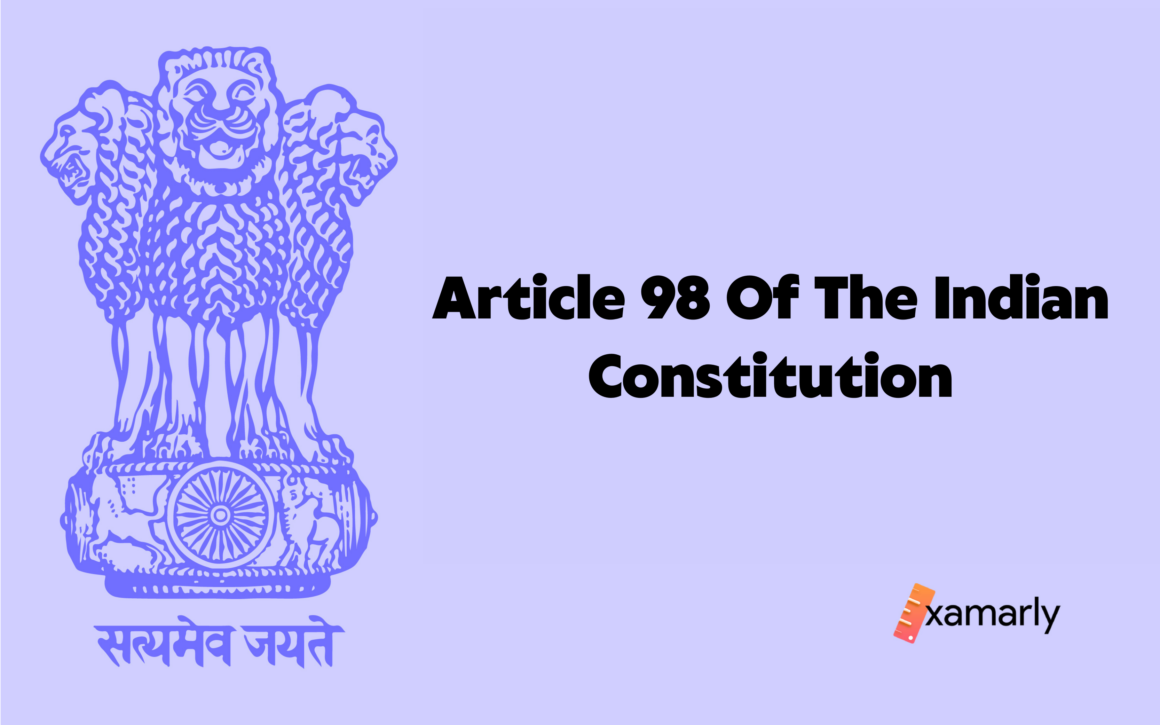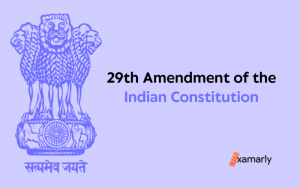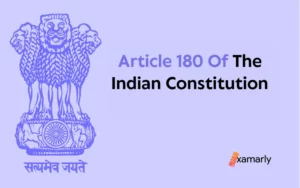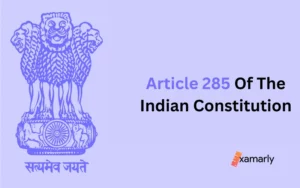Article 98 of the Indian Constitution talks about the working regulations of Secretariat Staff in the Parliament. We will understand the concepts in deep and try to understand each clause in this article in detail.
Article 98 Of The Indian Constitution – An Overview
Article 98 of the Indian Constitution articulates the provisions made for the conditions of service of the Secretarial Staff in both the Lok Sabha and the Rajya Sabha.
Let us go deep into the aforementioned Article and understand each of its subclause one by one.
Article 98 Of The Indian Constitution – In Detail
Clause 1 – As it is & Explained
“(1) Each House of Parliament shall have a separate secretarial staff: Provided that nothing in this clause shall be construed as preventing the creation of posts common to both Houses of Parliament”
The first clause of Article 98 of the Indian constitution says that each house of the Parliament, that is Lok Sabha and Rajya Sabha will have its own secretarial staff.
That means in the first place there will be no common secretarial staff for both Houses of Parliament.
The first clause also says that the clause itself will not mention anything that would hinder the formation of common posts in the Parliament for both houses in case the need for the formation arises.
Clause 2 – As it is & Explained
“(2) Parliament may by law regulate the recruitment, and the conditions of service of persons appointed, to the secretarial staff of either House of Parliament”
Clause 2 of Article 98 of the Indian constitution states the power and authority of the Parliament over the formation of secretarial staff.
It says that the Parliament has the authority to make laws to regulate the recruitment and the conditions of services of persons selected to join the secretarial staff for any of the houses of the Parliament.
Related – Article 97 Of The Indian Constitution
Clause 3 – As it is & Explained
“(3) Until provision is made by Parliament under clause (2), the President may, after consultation with the Speaker of the House of the People or the chairman of the council of States, as the case may be, make rules regulating the recruitment, and the conditions of service of persons appointed, to the secretarial staff of the House of the People or the council of States, and any rules so made shall have effect subject to the provisions of any law made under the said clause.”
The third clause reflects on the point that until the time the Parliament makes any provision as mentioned in clause 2, the President if wants can make rules related to the regulation of recruitment of people for secretarial staff for either of the house of the Parliament.
Any rule that has been made by the President will affect the provisions of any law that has been made under the aforementioned clause.
Summing Up
In this article, we saw that there are specific constraints in the functioning of the officials that are leading the top offices in the government. Article 98 of the Indian Constitution reflects on the fact that there is never a simple process to recruit and run officials.
As these officials are of high regard, the involvement of the President is a mandate.






